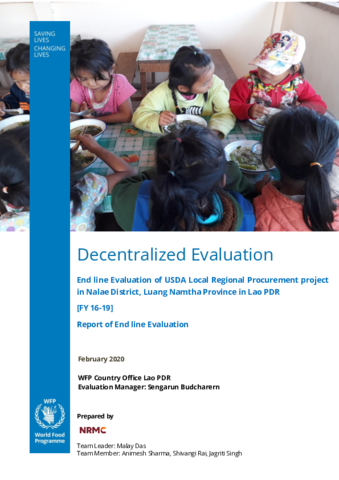
The LRP program design, as per the USDA requirement, required an activity evaluation to critically evaluate its implementation and performance to generate recommendations that are replicable in other geographic areas.
Objectives of the evaluation are twofold: (a) Accountability: This evaluation assessed the USDA LRP performance and results of the implementation; and (b) Learning: The evaluation determined the reasons why certain results occurred, or not, to derive good practices and lessons learnt, providing evidence-based findings to inform future operational and strategic decision-making.
The evaluation adopted a quasi-experimental evaluation design, which included the selection of LRP-supported (intervention) and non-supported (control) villages. A mixed-method approach was deployed to answer every evaluation criterion using key informant interviews (KIIs) and focus group discussions (FGDs). The evaluation design also included Most Significant Change (MSC), which involved identification and documentation of seven case studies in intervention villages, highlighting personal accounts of change of farmers who participated in LRP. Gender Equality and Empowerment of Women (GEEW) was mainstreamed in the evaluation by ensuring a gender-balanced team, collecting information for boys, girls, men and women, and undertaking a gender-disaggregated analysis.
